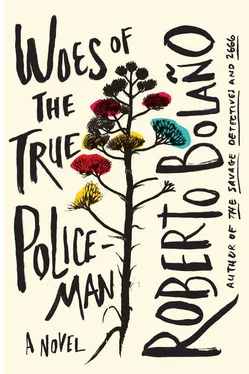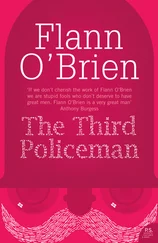On the Ruin of Amalfitano at the University of Barcelona
The rector and the head of the literature department entrusted Professor Carrera with the mission of informing Amalfitano of his situation at the university. Antoni Carrera was forty-eight, a former anti-Franco militant, someone who at first glance led an enviable life. He seemed reasonably content, a happy man. His salary and that of his wife, a high school French teacher, covered the mortgage on an old house that he had renovated to suit himself and the occasional whims of an architect friend. The house was magnificent, with six bedrooms, a huge, bright living room, a garden, and a little sauna that was Professor Carrera’s greatest domestic pride.
His son, seventeen, was a good student, or so his parents thought. He was six foot two, and every Saturday aftenoon the Carreras went to watch him play basketball at a club in Sant Andreu. All three were in good health. Antoni Carrera and Anna Carrera had gone through some hard times and once, long ago, had even come close to divorcing, but that was in the past and their marriage had gradually stabilized; now they were good friends, they shared some things, but in general each led his or her own life. One of the things they shared was their friendship with Amalfitano. When he arrived at the university he didn’t know anyone, and Carrera, taking pity on him and following the unwritten rules of scholarly hospitality, held a dinner at his house — his welcoming, wonderful house — and invited Amalfitano and three other department colleagues. It was a peculiar affair. The professors didn’t know each other, nor did they have any particular interest in getting to know Amalfitano (Latin American literature no longer roused passions); the professors’ wives looked terminally bored; Carrera’s own wife wasn’t in the best of moods. And Amalfitano didn’t appear at the agreed-upon time. In fact, he was very late, and the hungry professors got impatient. One suggested that they begin without him. Most would have seconded the motion, but Anna Carrera had no interest in starting the same dinner twice. So they ate cheese and Serrano ham and reflected on the impunctuality of South Americans. When Amalfitano arrived at last he was accompanied by a strikingly beautiful adolescent. At first the Carreras assumed, stunned, that it was his wife. Humbert Humbert, thought Antoni in terror, seconds before Amalfitano introduced her as his only daughter. I’m a widower, he remarked later, unprompted.
The dinner, as Anna had feared, proceeded in the usual fashion. The Amalfitanos, father and daughter, weren’t very chatty. The professors discussed seminars, books, university politics, and gossip, though no one could say exactly what the topic was at any given moment: gossip turned into seminars, university politics into books, seminars into university politics, books into gossip, until every permutation was exhausted. In fact they were really only talking about one thing: their work. When they tried to get Amalfitano to tell the same kind of stories about his previous university (it was very small and I taught only one course, on Rodolfo Wilcock, he said, politely and abashedly), the result was disappointing. No one had read Rodolfo Wilcock, no one cared about him. His daughter talked even less. Despite all their efforts, the professors’ wives got monosyllabic replies to their questions: did she like Barcelona, yes, could she speak some Catalan yet, no, had she lived in many countries, yes, did she find it difficult to keep house for her widowed father, the classic absentminded literature professor, no. Though at the coffee hour ( after eating, thought Carrera, as if father and daughter were used to eating in silence) the Amalfitanos began to take part in the conversation. Someone, taking pity on them, brought up a subject having to do with Latin American literature, which led to the first lengthy remarks by Amalfitano. They talked about poetry. To everyone’s surprise, and to the disgust of some (feigned surprise and disgust, of course), Amalfitano held Nicanor Parra in higher esteem than Octavio Paz. After that, as far as the Carreras — who hadn’t read Parra and didn’t care much about Octavio Paz — were concerned, everything began to go well. By the time the whiskey was brought out, Amalfitano was frankly winning, witty, brilliant, and Rosa Amalfitano, as her father’s happiness drew everyone into its embrace, grew more talkative, more forthcoming, though she never shed a certain reserve, a watchfulness, that made her even more charming in a way that struck Anna Carrera as most unusual. An intelligent girl, an attractive and responsible girl, she thought, realizing that imperceptibly she had begun to love her.
A week later the Carreras invited the Amalfitanos for dinner again, but this time, instead of the professors and their wives, the fifth person at the table was Jordi Carrera, the pride of his mother, a slender adolescent with a shyness that was in some ways like Rosa’s.
As Anna hoped, they became friends on the spot. And the children’s friendship ran parallel to their parents’ friendship, at least during the time the Amalfitanos lived in Barcelona. Rosa and Jordi began to see each other at least twice a week. Once a week or once every two weeks Amalfitano and the Carreras talked on the phone, dined together, went to the movies, attended exhibitions and concerts, spent hours — the three of them — in the Carreras’ living room, by the fireplace in winter or in the garden in summer, talking and telling stories about when they were twenty, thirty, and possessed of an invincible courage. Concerning the past — their personal pasts — the opinions of the three diverged. Anna looked back on those days with sadness, a fond and rather serene sadness, but sadness nonetheless. Antoni viewed his heroic years with indifference, as something necessary but almost nonexistent; he despised nostalgia and melancholy as pointless, sterile emotions. Amalfitano, on the other hand, was dizzied, thrilled, depressed by remembering, capable of weeping in front of his friends or bursting into laughter.
They usually talked late into the night, when Carrera would give Amalfitano a ride back to his apartment on the other side of Barcelona, wondering how he had come to confide in him so easily, how he had learned to trust him in a way that he hardly ever trusted anyone. Amalfitano, meanwhile, usually made the trip half-asleep, watching through half-closed eyes the empty streets, the yellow signs, the dark and bright windows, at peace with himself in Carrera’s car, sure of arriving home safe and sound, of coming in the door quietly, jacket on the coatrack, glass of water, and before getting into bed, a last glance into Rosa’s room, out of pure habit.
And now the rector and the department head, always so prudent, so circumspect, had assigned Carrera — because you see him socially, one might call him your friend, he’ll listen to you (was there a threat there? a joke that only the rector and the department head understood?) — this delicate mission which had to be carried out tactfully, with decorum, persuasively, and at the same time firmly. With unshakable firmness. And who better than you, Antoni. Who better than you to find a solution to this problem.
So Amalfitano wasn’t surprised when Carrera told him that he had to leave the university. Jordi, under instructions from his parents, had taken Rosa to his room, and from the end of the hallway came the faint sound of the stereo. For a while Amalfitano was quiet, looking down at the rug and at the feet of the Carreras sitting one next to the other on the sofa. So they want to get rid of me, he said at last.
“They want you to go voluntarily, as quietly as possible,” said Antoni Carrera.
“If you don’t they’ll take you to court,” said Anna Carrera.
Читать дальше








![О Генри - Бляха полицейского О’Руна [The Badge of Policeman O'Roon]](/books/405347/o-genri-blyaha-policejskogo-o-runa-the-badge-of-po-thumb.webp)



